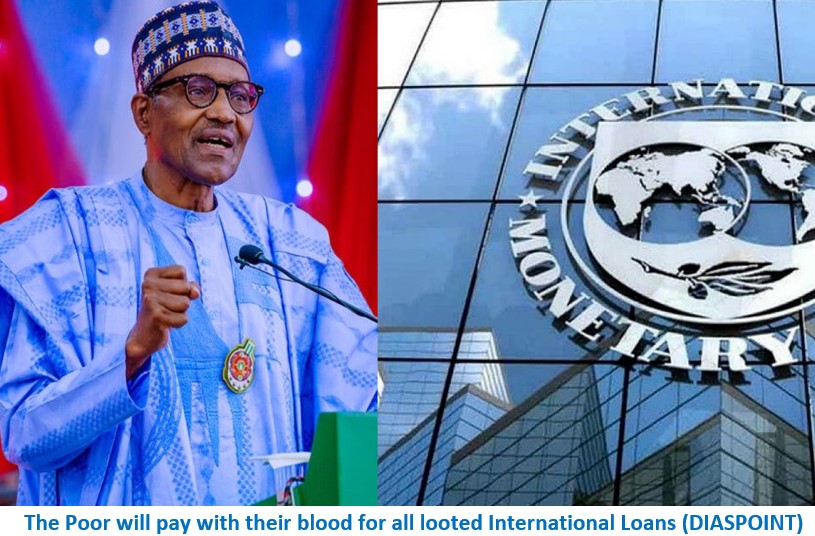IMF Urges Nigeria to Increase Tax to Cut Borrowing
Post By Diaspoint | April 16, 2023

The International Monetary Fund (IMF) has called on the Federal Government of Nigeria (FGN) to reduce its debt by focusing on increasing the tax basket and compliance as a means of generating revenue to cut borrowing.
The fund in its latest Fiscal Monitor titled, ‘On the path to Policy Normalisation’, released yesterday noted that Nigeria’s debt is projected to continue to rise and urged the government to remove fuel subsidies and direct them towards health and education.
The Minister of Finance, Budget, and National Planning, Zainab Ahmed, last week said Nigeria had secured a World Bank facility worth $800 million as the first tranche of palliatives to be disbursed through cash transfers to about 50 million Nigerians, who belong to the most vulnerable category in the society, to cushion effects of a planned removal of petrol subsidy by June.
The loan document, which was sighted by Daily Trust revealed that the facility agreement, which was signed by both parties, Nigerian government and IDA, on 16 August, 2022, comes with a commitment charge rate of 0.5 per cent per year and a service charge of 0.75% per year on the withdrawn credit balance, as well as an interest charge of 1.25% per year on the withdrawn credit balance.
The repayment will be made in instalments, with payments due on January 15 and July 15 each year. The first payment is due on January 15, 2027, and the last payment is due on July 15, 2051.
However, speaking on the side-lines of the briefings, Division Chief, Fiscal Affairs Department, IMF, Paulo Medas said: “In general, what we are saying about Nigeria is the need for a medium-term plan to reduce debt vulnerabilities over time and is because Nigeria has very low tax revenues. So, that makes it more vulnerable to these types of shocks and tightening global conditions.
“So, what we advocate is raising taxes, which is going to create space not only to manage debt but also to spend on other priorities. And the other part of what we say is that Nigeria has not benefited as much from the windfall of the oil prices in the past because a lot of it has been spent on these untargeted energy subsidies.”
Read More from original source
